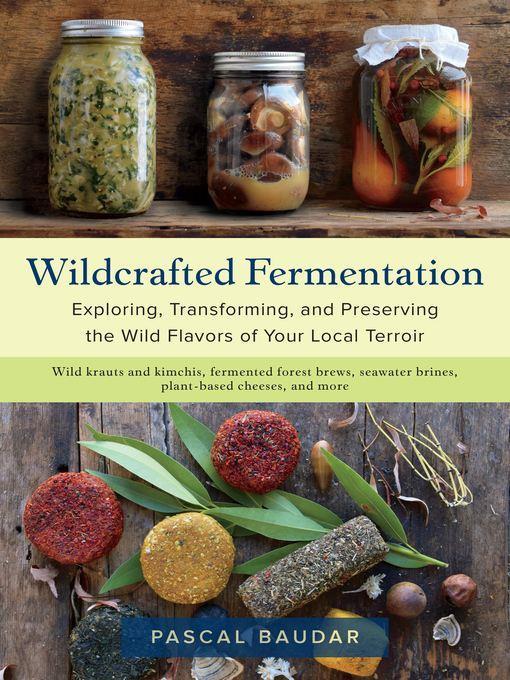
Wildcrafted Fermentation
Exploring, Transforming, and Preserving the Wild Flavors of Your Local Terroir
کتاب های مرتبط
- اطلاعات
- نقد و بررسی
- دیدگاه کاربران
نقد و بررسی

February 1, 2020
Naturalist Baudar (The Wildcrafting Brewer), who teaches on topics such as foraging for and identifying local edible and medicinal plants, uses the idea of "local" to guide the recipes in this latest title. Baudar reminds readers to experiment with their own "local" ingredients outside of baseline requirements for recipes and is also mindful of the environmental impacts of foraging and need to do so responsibly. He begins with basic fermentation methods (e.g., sauerkraut) and progresses through more complex dishes, including soups, sauces, spice blends, and nondairy cheeses. The strong attention to detail makes the preparation processes less intimidating for home cooks who have no experience with fermentation. As with the author's Wildcrafted Fermentation, this book is beautifully designed and photographed. VERDICT While niche in many aspects, Baudar's depth of knowledge and relatable voice provide a highly valuable introduction to fermentation and foraged foods.--Meagan Storey, Virginia Beach
Copyright 2020 Library Journal, LLC Used with permission.

December 16, 2019
Baudar (The Wildcrafting Brewer) offers another deep dive into plant-based lacto-fermentation. Newbies can get their fermenting feet wet with basic sauerkraut and pickles before stepping outside their homes in search of such ingredients as dandelions (dandikraut) or cattail shoots (fermented with cabbage, fennel or chervil, and salt). Copious photos and detailed instructions (such as tips on checking pH levels) ensure both success and safety. Recommendations for specific fermentation kits run the gamut and utilize jars, leaves (such as folded mustard leaves), seawater, and, for the more adventurous, a hollowed-out oak stump. Basic recipes include those using roots (fermented spicy mustard, wild radish, burdock, turnip) and for creating foraged beers and raw sodas, soups (gazpacho, wild oyster mushroom, miso with mustard root), and a fermented pesto (made with chickweed, chervil, and fennel). While some of the ingredients can be sourced as easily as taking a stroll through the woods, many dishes will need preprepared ingredients, such as a culture starter. Readers interested in taking the next step in producing their own fermented, locally sourced food will find Baudar a useful and instructive tutor.

February 15, 2020
Baudar (The New Wildcrafted Cuisine, 2016, and The Wildcrafting Brewer, 2018) is an expert on wild edible plants and the ways they can be used and manipulated culinarily. He is especially interested in looking at food preservation in a new way, which led to this exploration of fermentation. Starting with the most simple method of fermentation used to make sauerkraut, the difficulty level ramps up through brine-based fermentation, chunky or liquid ferments (such as salsa, soup, or hot sauce), fermented pastes, and the fermentation of loose ingredients in a jar. Baudar's genial voice guides readers through his preferred methods and conveys his passion for this process, followed by explorations into local, wild ingredients and the ways they can be used. Not every ingredient used is wild, and the 100-plus recipes include room for ingredient variation according to what is available in the reader's region. Frequent comparisons between the process or item described and its commercially-available counterpart provide context for what might feel like a new experience (assuming not many readers regularly forage for ingredients!).(Reprinted with permission of Booklist, copyright 2020, American Library Association.)

























دیدگاه کاربران